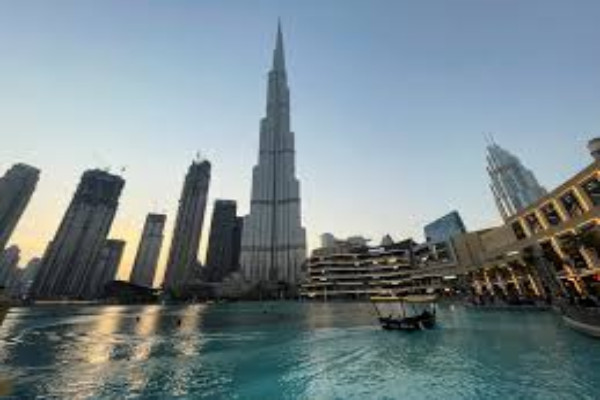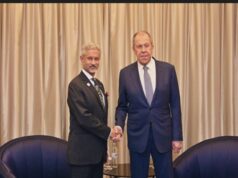
India is rolling out the red carpet for Dubai’s Crown Prince Sheikh Hamdan bin Mohammad al-Maktoum, acknowledging not only long standing political and economic ties, but also the point that he is the next generation of leadership, he is the future and therefore the outreach is important.
Not that the succession is imminent, but there seems little doubt Dubai has begun the gradual transition to the ruler who will in time replace the current Emir Sheikh Mohammad bin Rashid al-Maktoum.
“India is trying to remain ahead in this game,” says Mahesh Sachdev, former head of the West Asia & North Africa Division of the External Affairs Ministry and an Arabic affairs specialist. “India is aligning with the next generation of leaders, seeking to build relations early on.”
The fact that Crown Prince Hamdan wears many hats is seen as significant: he is deputy prime minister and defence minister of the UAE.
The composition of the accompanying delegation has strong economic focus. Apart from the minister of trade and economy, it includes the minister of AI, and the minister of state for cabinet affairs. There are also the top honchos from Dubai Civil Aviation and the CEO of Emirates Airline.
“The presence of aviation heavyweights suggests Dubai intends to press India on its demand for increasing airline seat capacity through a liberalised air service agreement,” Sachdev told StratNewsGlobal. “India is not comfortable with that prospect since airlines like Indigo and Air India will lose passengers, especially on long haul routes to Europe and the US.”
As it is, the Delhi-Dubai, Mumbai-Dubai and Calicut-Dubai sectors are dominated by Dubai-based carriers like Emirates. By all accounts, they offer efficient service and cheaper fares than Indian carriers. But they get worried when Air India or Indigo show every sign of wanting to compete and the prospect of Delhi emerging as a regional aviation hub, is a nightmare prospect.
Energy will be another subject of discussion. India is the third largest consumer and importer of crude oil. Dubai does not produce any crude but the UAE does and is the seventh largest exporter to this country. There could be discussion on the possibility of investment in the downstream Indian oil sector.
But the geopolitical situation is the major concern. There is a two-month window for interim talks between the US and Iran, and if those talks fail, President Trump has threatened military action.
“Iran for its part, has warned neighbours like the UAE that if they allow the US military to overfly their airspace to carry out strikes on Iran, their interests could be harmed,” Sachdev said.
Particularly worrying for Dubai is the “informal” trade that happens with Iran, which is estimated to be as high as $20 billion. This could be hit in the event of tensions spilling over into conflict.
This geopolitics worries India too. It wants more investment from the UAE but given global headwinds, caution is called for. Trump is demanding that the world invest in his country, and his visit to the UAE, Saudi Arabia and Qatar next month is intended to drum up that investment.
A word about the India-UAE comprehensive economic partnership signed over two years ago. India has some reservations and is expected to use Crown Prince Hamdan’s visit to explore why and how the UAE has leveraged it better.
Thirty eight years in journalism, widely travelled, history buff with a preference for Old Monk Rum. Current interest/focus spans China, Technology and Trade. Recent reads: Steven Colls Directorate S and Alexander Frater's Chasing the Monsoon. Netflix/Prime video junkie. Loves animal videos on Facebook. Reluctant tweeter.




